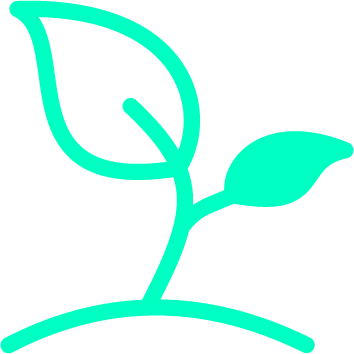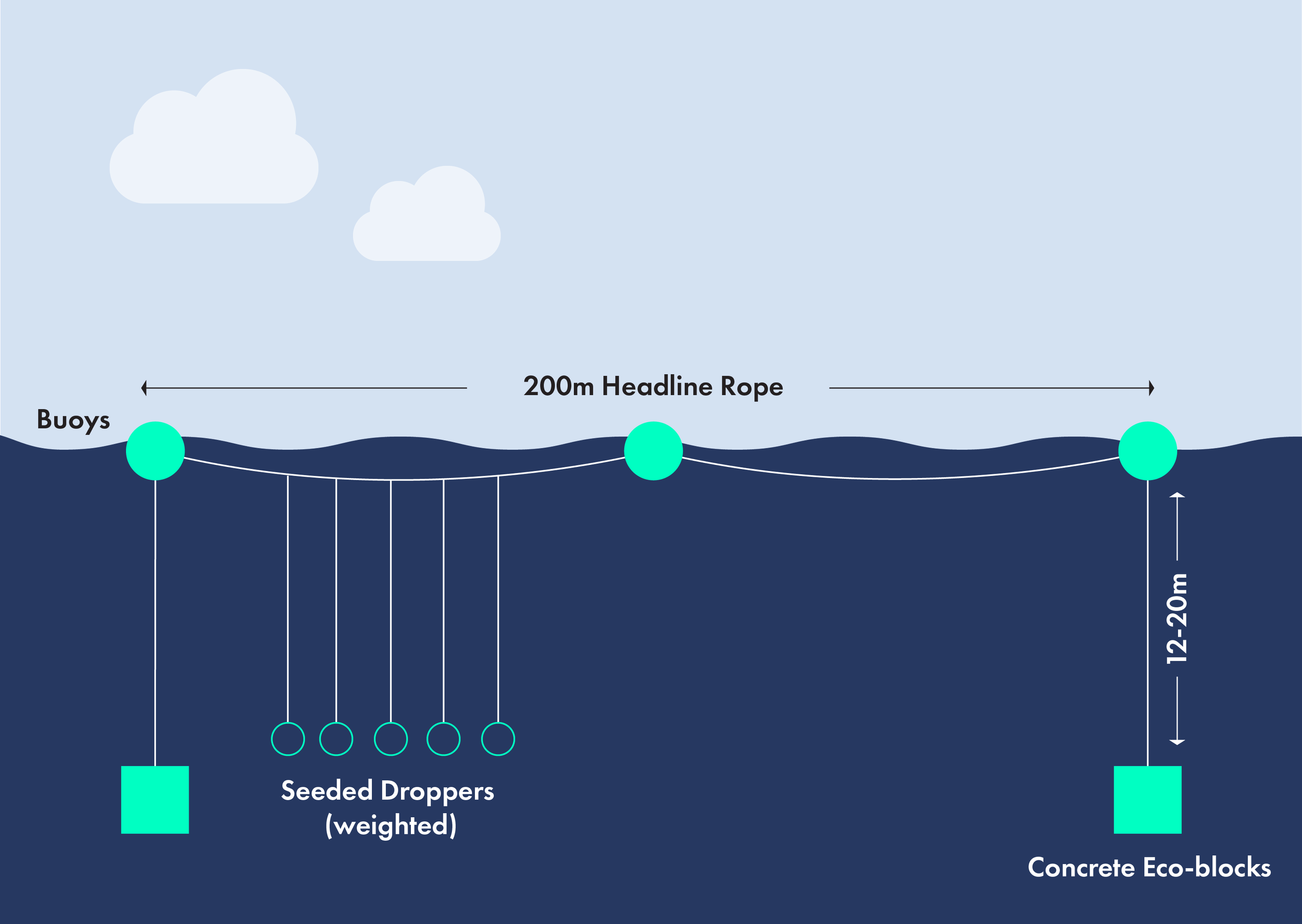
We are growing a network of sustainable, scalable seaweed forests…
…or as we call them, “algapelagos”
Rewilding our oceans to provide sustainable products for regenerative agriculture and beyond.
We seed, grow, harvest and process seaweed for use in a broad range of applications from agriculture, food, skincare, biomaterials and biorefining.
Why?
Climate change and resource scarcity are the defining issues of our time.
Sustainable and renewable industries are the key to a viable future for our planet.
Every year, humanity is consuming natural resources faster than our planet can renew them. We need a paradigm shift.
There will be 10 billion humans on earth by 2050.
How do we provide enough food to feed our growing population sustainably?
The answer lies in regenerative agricultural practices, supported by sustainably-produced, low-carbon products that grow in the ocean.
algapelago is developing a range of seaweed-based, animal feed supplements and plant fertilisers to address these systemic issues.
Why Seaweed?
NO Fresh water use
NO Land use
NO Pesticides or Fertilisers
Seaweed is high in minerals, vitamins and bioactive compounds. Its rich nutrient content makes it the ideal solution for natural fertilisers and animal feed supplements. At Algapelago, we see kelp as a key enabler of the transition to low impact agriculture by replacing carbon-intensive, unsustainable inputs.
Growing seaweed forests also has wider environmental and societal benefits:
-
Environmental
Carbon sequestration
Biodiversity net gain
Fish nursery
Shelter and feeding ground for dolphins and seals
Excess nutrient absorption
-
Social
Varied job creation
Coastal community support
Economy revitalisation
Algapelago is a BLUE IMPACT company working in meaningful support of delivering on the United Nations’ SDGs:
Creation of stable, skilled direct and indirect jobs in geographies needing capacity growth
No waste. No chemicals. No fertilizer or pesticides. Net benefit to the environment
Our kelp farm sequesters and offsets vast amounts of Carbon Dioxide each year
Increase in localised marine biodiversity & ecosystem resilience. Reduction in ocean acidity & major boost to regional fish stocks
How?
We are the largest UK licenced kelp cultivator, which means we grow local seaweeds from seed in low-impact forests out in the ocean.
Our cultivation infrastructure includes anchors on the seafloor, floats on the surface and tensioned ropes suspended below the water, on which the seaweed grows.
For Kelp cultivation to be both commercially and environmentally beneficial, it needs to be rolled out at significant scale. That is why we are operating the most offshore seaweed farm in Europe where there is room to grow, creating de facto sanctuaries for marine life, without the spatial conflicts common to more crowded coastal areas.

Our forest in North Devon has already had its first successful season and now our teams are working to scale up and improve for next year – growing more kelp, locking up more carbon, providing critical habitat & sanctuary for fish stocks to replenish.
As we scale up our operations, we move closer to creating “Blue Forests for a Green Future.”
Why algapelago?
We grow our kelp 4 miles offshore, in North Devon’s pristine Atlantic waters under the shadow of mythical Lundy Island.
The location was chosen for its optimal marine conditions for growing seaweeds – nutrient rich, cold, clean water, plenty of sunshine and naturally-occurring kelp beds.
We work with an excellent local network of marine contractors, engineers, researchers and scientists to optimise the whole growing process from seed to crop and then into the conversion process of stabilised, semi-finished products for use in downstream industries.
Our first site acts as the pilot for a future network of sustainable seaweed forests (“algapelagos”) which can be rolled out across the globe. The key focus for each forest will be converting the biomass into ready products - appropriate for local markets, beneficial to local marine ecosystems.











